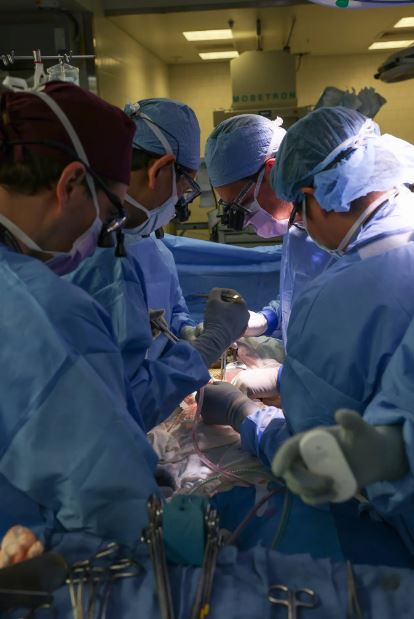In a groundbreaking development, the Biden administration announced on Tuesday the successful discharge of the first patient to undergo a kidney transplant from a genetically modified pig. Richard Slayman, 62, left the hospital just two weeks after the pioneering surgery, marking a significant milestone in medical history and potentially ushering in a new era of cross-species organ transplantation.
The transplant of the genetically modified pig kidney into Slayman represents a remarkable achievement in medicine, with the organ exhibiting functionality akin to that of a human kidney. Unlike two previous attempts involving heart transplants from genetically modified pigs, which resulted in the patients’ deaths, Slayman’s kidney is performing vital functions such as producing urine, removing waste products from the blood, and maintaining fluid balance.
Expressing his gratitude and optimism, Slayman acknowledged the exceptional care he received from the medical team at Massachusetts General Hospital and expressed hope for a brighter future not only for himself but also for other kidney patients awaiting transplantation.
The success of Slayman’s procedure brings the concept of xenotransplantation, or animal-to-human organ transplantation, closer to reality. Dr. David Klassen, the chief medical officer for the United Network for Organ Sharing, hailed the potential of this breakthrough to benefit a large number of patients. However, he cautioned that further research and clinical trials are necessary to ensure the safety and efficacy of xenotransplants before they can be widely adopted.
Despite the promising outcome, uncertainties remain regarding potential rejection of the transplanted organ by Slayman’s immune system. Additionally, logistical challenges and cost considerations pose significant hurdles to scaling up xenotransplantation as a viable healthcare solution. The sustainability and affordability of such procedures within the healthcare system require careful consideration and evaluation.
Kidney disease represents a significant burden on healthcare systems, with millions of Americans affected by chronic kidney disease and thousands requiring dialysis or kidney transplants. The shortage of human organ donors underscores the urgent need for alternative solutions, such as xenotransplantation, to address the growing demand for organ transplantation.
The procedure performed on Slayman involved a kidney genetically engineered by the biotech company eGenesis, with modifications aimed at reducing the risk of rejection and ensuring compatibility with human recipients. While Slayman’s case offers hope for patients with limited treatment options, extensive research and regulatory oversight are essential to advance the field of xenotransplantation responsibly.
Slayman’s post-transplant recovery will be closely monitored, with regular assessments and medication to prevent organ rejection and manage potential complications. Despite the initial challenges, his rapid recovery and discharge from the hospital signify a significant milestone in the field of organ transplantation.
Looking ahead, the success of Slayman’s procedure provides renewed optimism for patients awaiting life-saving organ transplants. While significant challenges remain, including regulatory hurdles and logistical considerations, the potential of xenotransplantation to address the organ shortage crisis offers hope for a future where life-saving treatments are more accessible and effective.
As Slayman embarks on his journey of post-transplant recovery, his experience serves as a beacon of hope for patients and healthcare professionals alike, highlighting the transformative impact of innovative medical interventions on improving patient outcomes and quality of life.

